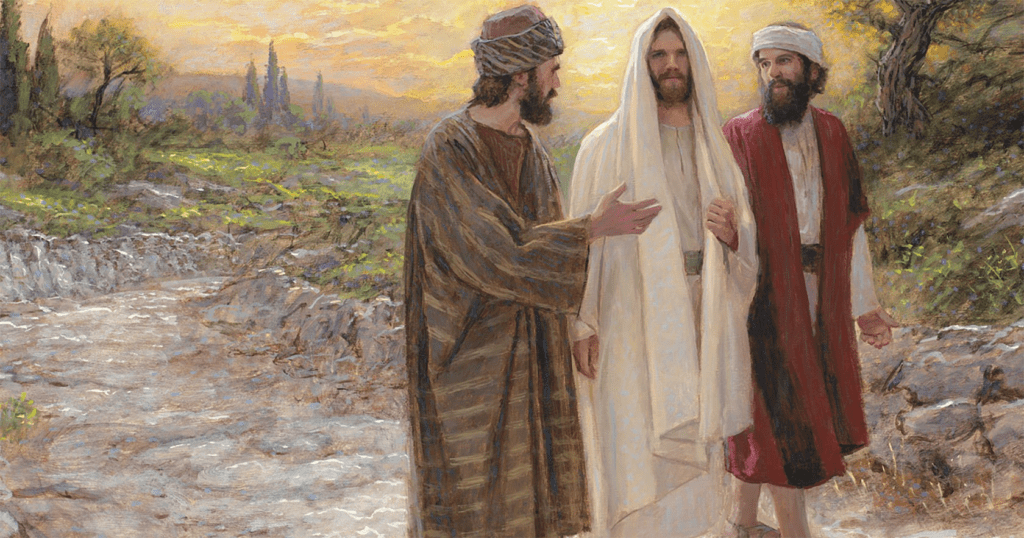
The disciples, on their way to Emmaus, were downcast and depressed. Their faith was wavering after the passion and death of Jesus. They felt as if Jesus had failed and wasn’t all they hoped to be.
In those circumstances, “Jesus himself drew near and walked with them.” Indeed, whenever we are in desolation, we often feel as if our faith is being attacked. We don’t feel God’s presence or love, we get discouraged, and it seems God has abandoned us. Nevertheless, it is precisely at that very moment when Jesus “draws near” and “walks with us.”
We are never alone. But especially when we are suffering, the Lord draws near even if we don’t feel him near. St. Ignatius of Loyola teaches that we need to remember that we have sufficient grace whenever we are in desolation. That means Jesus himself is strengthening us.
While the feeling of grace often abandons us in times of desolation, the Lord never does. Indeed we always have what St. Ignatius calls “sufficient grace” to fight against temptation and desolation. By sufficient grace, St. Ignatius distinguishes this grace from the one we can “feel.” But that doesn’t mean “sufficient grace” is small or powerless. It is a grace always more than powerful enough to conquer any temptation our enemy could throw our way.
But “their eyes were prevented from recognizing him.” While Jesus draws near during suffering, the problem is that we don’t feel his presence. This is why St. Ignatius also suggests that we insist in prayer and meditation. Prayer of petition, asking the Lord to come to our aid. And meditation, reflection on God’s goodness, his presence, and how he has aided us in the past.
It has always seemed to me very comical in today’s Gospel how Jesus plays dumb, asking them, “What sort of things?” It makes me smile thinking that Jesus, true God and true man, who knows all things, will be asking this question.
Even though he does know everything, Jesus does not get bored of conversing with us. He wants us to tell him whatever is going on in our hearts. He wants us even to tell him about our frustration and anxiety.
Sometimes, we might think telling God what is happening to us is ridiculous since he already knows it. However, Sacred Scripture says, “My delights were with the sons of men.” Yes, Jesus delights in listening to us, even when all we do is complain.
At times Jesus might reprehend us, “Oh, how foolish you are! How slow of heart to believe!” But he will always “open the scriptures to us.” Jesus will always challenge us in prayer to become a better version of ourselves, get out of our selfishness, and love more freely. But most of all, he will always reveal his love and mercy to us.
Finally, the disciples asked him, “Stay with us, for it is nearly evening, and the day is almost over.” And Jesus “was made known to them in the breaking of bread.”
Christ stays with us in many ways. He remains in his Church that takes care of us. In the sacraments that give us grace. In the indwelling of the Holy Spirit in us through grace. But his most powerful presence is in the breaking of bread, the Eucharist. His real presence in the Sacrament of the Altar is unique. In transubstantiation, Jesus makes himself really and truly present with his body, blood, soul, and divinity under the sacred species. Let us beg from our Lord in the Eucharist the grace of spiritual joy.

